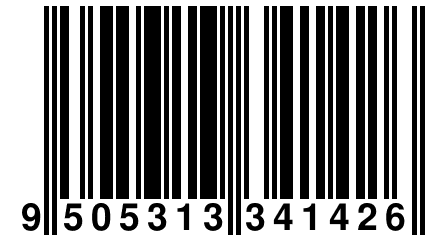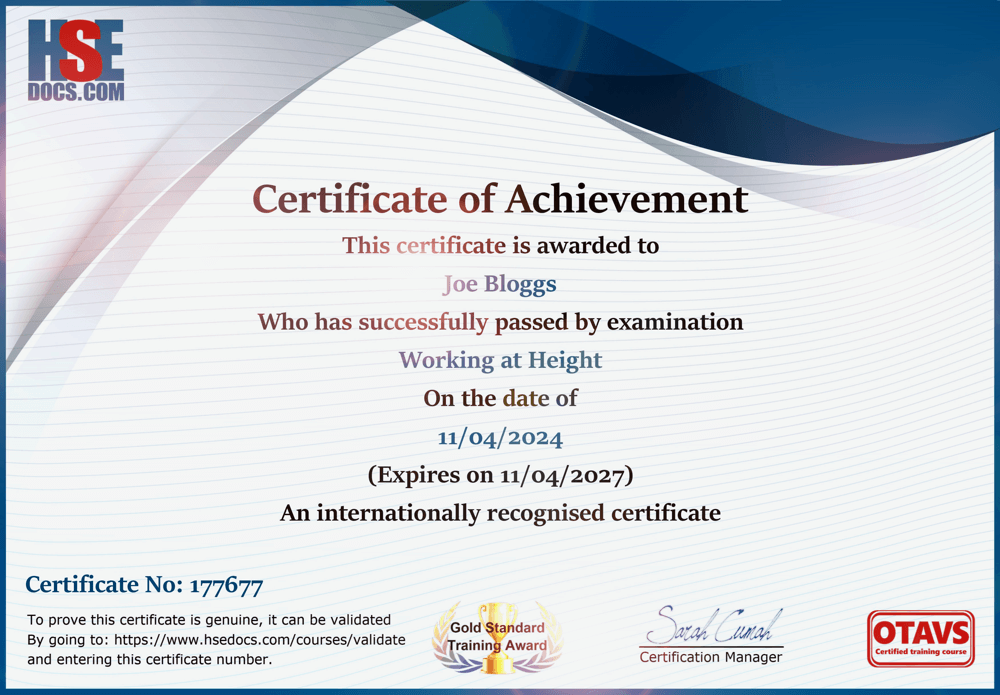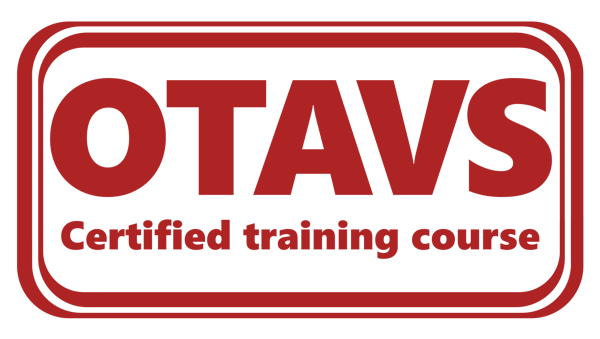Online Level 2 Food Hygiene Course from £4.99
AKA Food Safety

Course certificate valid for 3 years
Internationally accredited training
HSEDocs provides a Level 2 Food Hygiene course with an internationally recognised certificate for individuals responsible for handling and serving food to the public. This comprehensive course covers all essential topics related to food hygiene, guaranteeing that you acquire the necessary knowledge and skills to handle food safely and hygienically. Upon finishing the course, you will receive a certificate of proficiency for level 2 food safety standards.
With our course prices, you get the best value for your money. Individual courses cost £9.99 each, but you can get them for only £6.49 each if you order ten or more. Bulk orders of 50 or over cost just £4.99 per course.
Course duration: Between 1 ½ and 2 ½ hrs depending on learning speed.
Course format: Three video training modules, with a multiple-choice section at the end of each module.
Entry Requirements: Anyone can complete this course, whether they have previous experience or not.
If you work in a cafe, chip shop, restaurant, fast food outlet, mobile catering unit, hotel kitchen, hospital kitchen, school kitchen, college kitchen, or outdoor cooking events, then this online Level 2 Food Safety certified course is for you.
After completing your online Food Safety course, your training certificate will be valid for three years. It is internationally recognised and counts towards your Food Hygiene Rating.
All successful candidates are entered on the national training register, and certificates can be verified by employers or others to prove that they are genuine by clicking Validate a Certificate and typing in the certificate number.
Overview of HSEDocs Level 2 Food Hygiene Course
Our Level 2 Online Food Hygiene course follows the current national curriculum. The learning topics covered in this HSE course include:
- Personal and kitchen hygiene.
- Risk assessment and control measures.
- Temperature control and its importance.
- Cross-contamination risks.
- Food hazards and how to avoid them.
Learning about personal and kitchen hygiene is essential because it emphasises the significance of maintaining cleanliness. It highlights the potential outcomes of overlooking the strict standards necessary to protect food from hazards caused by poor hygiene.
The section on risk assessments involves identifying and analysing potential risks in the catering environment, understanding the reasons for conducting these assessments and implementing specific control measures to minimise or eliminate these risks. This process is crucial for ensuring the safety of both customers and staff and for maintaining high food safety standards within the industry.
The section on risk assessments involves identifying and analysing potential risks in the catering environment, understanding the reasons for conducting these assessments and implementing specific control measures to minimise or eliminate these risks. This process is crucial for ensuring the safety of both customers and staff and for maintaining high food safety standards within the industry.
Cross-contamination poses a significant risk of food poisoning, and this section provides a comprehensive exploration of all potential sources and consequences of cross-contamination.
The final section deals with avoiding hazards using HACCP (Hazard, Analysis, Critical, Control, Point) to record, monitor, and reduce probable risks.
Our Level 2 online Food Hygiene certificate is internationally recognised and counts towards your Hygiene Rating, which you can find out more about in our latest blog - ‘Your Guide To Food Hygiene Ratings.’

If you are involved in cooking, preparing, or handling food for the retail or hospitality industries, it is essential to obtain a Level 2 Food Hygiene certificate. This certificate demonstrates your proficiency in the proper handling of food and the maintenance of a safe environment for food preparation. The comprehensive food hygiene training covers essential practices such as personal hygiene, cross-contamination, cleaning, and storage to ensure the safety of food. This training is easily accessible on various platforms, allowing you to complete the course at your convenience and pace, making it convenient to fit into your busy schedule.
The Level 2 Food Hygiene online course is carefully crafted to deliver essential knowledge and skills to learners in a manner that is clear, concise, and easily digestible. The comprehensive course content is designed to cater to all candidates and encompasses a wide spectrum of topics pertaining to food hygiene. By undertaking this course, learners will grasp a deep understanding of the fundamental principles and objectives crucial to upholding food safety standards. They will also be equipped with the knowledge required to comprehend the significance of adhering to hygiene practices in order to safeguard the safety of food products and prevent foodborne illnesses.
Understand why maintaining a high level of personal hygiene is a must for anyone working in a food-handling area. This knowledge is essential for ensuring food safety and is a key lesson from the Level 2 Food Hygiene course.
Learn that in a food-handling area, people's clothing must be suitable, clean, and protective. When preparing or handling food, their hair should be secured by tying it back and wearing a suitable head covering. All jewellery should be removed prior to work, and even though a wedding ring is the exception and may be worn in a food-handling area, it is still preferable practice to remove it for work.
Let the Level 2 Food Hygiene course teach you about the importance of food handlers not touching their face, or hair and handwashing regularly, especially after breaks, coughing or sneezing.
Learn more about personal hygiene in the FSA’s ‘Safer Food, Better Business For Caterers Pack'.
The Management of Health and Safety at Work Regulations 1999 states that employers must protect workers and any other people who may be affected by their business activities from harm.
Regulation 3, specifically states that every employer shall make a suitable and sufficient assessment of—
(a)the risks to the health and safety of his employees to which they are exposed whilst they are at work; and(b)the risks to the health and safety of persons not in his employment arising out of or in connection with the conduct by him of his undertaking.
Taking our Level 2 Food Hygiene course will help you understand the importance of this legislation in a food environment and what can go wrong if it’s not followed.
Ensuring food is at or reaches the correct temperature during different stages of preparation and storage is essential in maintaining food safety.
And it’s not just about reheating a meal that’s been stored in a fridge. Temperature control in food hygiene covers, cooking, hot holding, reheating, refrigerating, cooling, freezing, and defrosting.
More about temperature can be learned from the temperature control pages on the FSA website.
Our food hygiene training teaches you what may happen if food is not kept in the correct temperature zones, and one of the primary concerns is food poisoning.
Food poisoning occurs when consuming food contaminated with bacteria, viruses, parasites, toxins, or allergens.
Bacteria and viruses are the most common causes of food contamination. Contamination can occur if food is not cooked or reheated thoroughly or if it is not stored correctly, such as improperly frozen or chilled.
Preventing cross-contamination is crucial in avoiding food poisoning. Unfortunately, it can occur inadvertently and remain unnoticed until food is ingested, so learning the possible routes of contamination is a measure taught in our Food Hygiene Level 2 course.
Here are some measures to help prevent cross-contamination:
-
Good hygiene practices
Presuming you are suitably dressed and have removed jewellery, etc..… this is primarily about washing your hands after handling raw meat, high-risk foods, using the restroom, or engaging in similar activities. -
Use separate equipment
Employ distinct knives, colour-coded chopping boards, plates, and utensils for different types of food. Promptly wash all utensils and dishes that have come into contact with raw meat, poultry, or fish. -
Maintain clean surfaces
Regularly clean surfaces throughout the day, particularly after food preparation activities. -
Properly store food
Store raw meat in sealed bags or containers on the lower shelves of your refrigerator and cooked food on the top shelves. -
Wash produce
Always wash fruits and vegetables, even if peeling them. However, avoid washing raw meat and poultry before cooking, as this can spread bacteria in your kitchen.
To determine the level of food hygiene training you need, consider your job role and daily tasks. According to EC Regulation 852 , your training should correspond to your job responsibilities. We have created a useful guide that will help you understand the appropriate level of food hygiene training required for restaurant settings.
| Food Hygiene Level Guide | |
|---|---|
| Front of House & Wait Staff | Level 1 |
| Porter & Assistants | Level 1 |
| Line Cooks | Level 2 |
| Kitchen Managers & Supervisors | Level 3 |
| Restaurant Owners or Ops Managers | Level 4 |
Booking a food safety course with us is just like shopping on most online retailers. You can choose the course you want and add it to your cart. Then, simply proceed to checkout. If you already have an account with us, you will be asked to log in before confirming your purchase. However, if this is your first time using our platform, you will need to provide your personal information, which will register you for an account once the purchase is complete.
Your account will enable you to track individual candidates' course progress, store their certificates, and view your purchase history.
The admin panel offers several viewing options. You can view ALL COURSES, AVAILABLE COURSES, IN PROGRESS courses, and EXPIRED COURSES.

Contact Our Food Health & Safety Experts
We are always happy to help here at HSE Docs, so if you have any questions or concerns about the online Food Hygiene course or any other HSE Docs online training queries, please give us a quick call.

 CART
CART 














